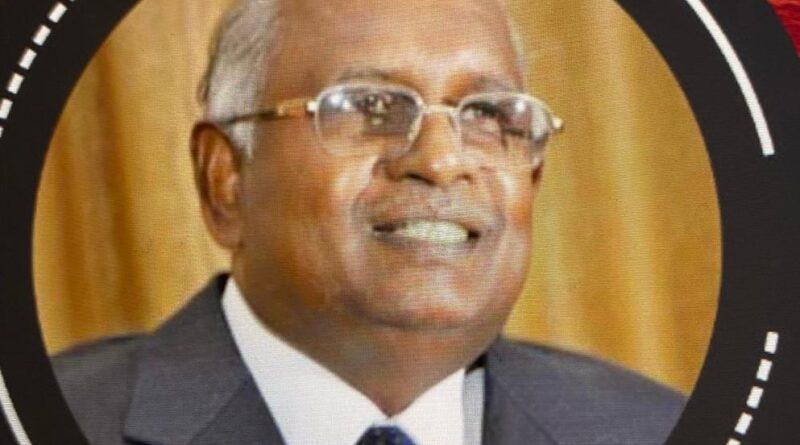Ex-CJI K.G Balakrishnan Appointed Head of the Panel to Study Status of Dalits Post Conversion
(Judicial Quest News Network)
The Union Government has formed a three-member Commisssion of inquiry headed by former Chief Justice of India, Justice K.G Balakrishnan, to consider the possibility of granting SC status to “new persons who have historically belonged to the Scheduled Caste” but have converted to religions other than Hinduism, Buddhism and Sikhism.
The Constitution (Scheduled Castes) order, 1950, which have been amended from time to time, says that no person professing a religion other than Hinduism or Sikhism or Buddhism can be deemed to be a member of a Scheduled Caste.
The Central Government’s Ministry of Social Justice and Empowerment issued a notification to that effect on October 6, in exercise of its powers under Section 3 of the Commission of Enquiry Act.
Besides Justice K.G Balakrishnan,who will be the Chairperson, of the commission will include the following members:
Dr. Ravinder Kumar Jain, IAS (Retd.) As member
Prof. (Dr.) Sushma Yadav, UGC As member
The terms of the reference of the Commission are as follows:
(i) To examine the matter of according Scheduled Caste status to new persons, who claim to historically have belonged to the Scheduled Castes, but have converted to religion other than those mentioned in the Presidential Orders issued from time to time under article 341 of the Constitution;
(ii) To examine the implications on the existing Scheduled Castes, of adding such new persons as part of the existing list of Scheduled Castes;
(iii) To examine the changes Scheduled Caste persons go through on converting to other religions in terms of their customs, traditions, social and other status discrimination and deprivation, and the implication of the same on the question of giving them Scheduled Caste status; and
(iv) To examine any other related questions that the Commission deems appropriate, in consultation with and with the consent of the Central Government.
On January 14th 2007, Justice K. G. Balakrishnan forged history as the Supreme Court’s first Dalit Chief Justice. He spent ten years at the Supreme Court including over three years as the Chief Justice.
Justice Balakrishnan was born on May 12th 1945. After completing his primary education, he got a bachelor’s degree in Science and attended Government Law College, Ernakulam. He enrolled in the bar on 16 March 1968 and built his practice around civil and criminal matters in Ernakulam. Within five years of practice, on 10 January 1973, he was appointed as a Munsif in the Kerala Judicial Service. However, he resigned to continue his practice in the High Court of Kerala.
On September 26th 1985, Justice Balakrishnan was appointed as a Judge of the Kerala High Court. After twelve years of service, he was transferred to the Gujarat High Court in 1997. He was soon elevated as its Chief Justice on July 16th 1998. A year later, he was transferred to the Madras High Court as its Chief Justice on September 9th 1999. The next year, he was appointed as a judge of the Supreme Court on June 8th 2000.
During his ten-year term at the Supreme Court, Justice Balakrishnan authored a total of 219 judgements and a part of 787 benches.
In the ten years of his tenure at the Supreme Court, Justice Balakrishna predominantly worked on criminal matters. He was involved in landmark cases around caste-based reservation, elections and encroachment.
Notable Judgments
As the Chief Justice of India, J. Balakrishnan authored several important judgments, including the Mandal Commission case. He led the five-judge bench and gave an independent opinion on the office order which was given by the Mandal Commission. The order provided for a 27% reservation in educational institutes for Other Backward Classes (OBCs). J. Balakrishnan upheld the reservation and stated that it was required to bring social and economic equality. He asserted that it was not meant for the “creamy layer,” and that only those who needed it could avail themselves of the benefits.
He decided on a high-profile case of Sanjay Dutt v. State of Maharashtra Tr. CBI, Bombay. In this case, the renowned actor, Sanjay Dutt, from Hindi Cinema was convicted for the 1993 serial blasts in Mumbai. While waiting for his appeal, he approached the Supreme Court to contest elections, as his conviction was not final. However, due to the gravity of the offence alleged, J. Balakrishnan refused Dutt’s request.
Justice Balakrishnan in the Bellary Mining case upheld the High Court’s decision of concretising the boundary between Karnataka and erstwhile Andhra Pradesh states. And instructed the Committee set up by a previous bench of the Supreme Court to undertake this responsibility. He stayed the mining operations until the establishment of the fence and warned that non-compliance would amount to contempt of court.
The Commission shall submit its report within a period of two years from the date of taking over of the charge by the chairperson, reads the notification.
The headquarters of the Commission will be at New Delhi.
[Read the Notification]



